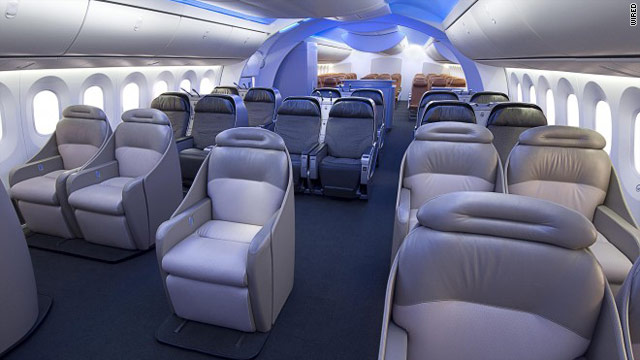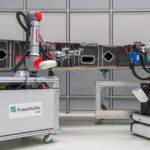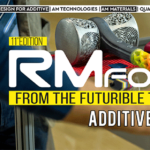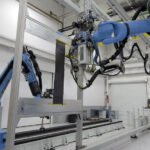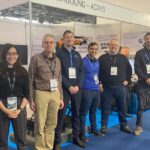A total of 20 partners are involved in the transatlantic cooperation, including companies of varying sizes, universities, and research institutions in both countries. The project aims to combine the competencies on both continents in the development of innovative new products. The program is part of the New High-Tech strategy of Germany’s Federal Ministry of Education and Research (BMBF) and is receiving government and commercial funding from both Germany and Canada.
Quieter aircraft cabins for tomorrow’s travels
Today, the noise level in an aircraft cabin is similar to that on a busy motorway. The engines themselves are getting quieter and quieter, but noise and vibration continue to be transferred to the inside of the aircraft via the outer skin of the fuselage, particularly at take-off. The performance limits of conventional insulating material such as glass wool and foam have long since been reached. As a next step, German and Canadian researchers want to investigate the potential of new sound-absorbing insulation – so-called acoustic metamaterials – as a standard approach to in-flight noise reduction. Test sites will include the Acoustics Lab at Hamburg’s ZAL Center of Applied Aeronautical Research; the research infrastructure at this facility amongst the most extensive in Europe. The project is being led by ZAL and Mecanum. Other partners are 3M Canada, Airbus, the École de Technologie Supérieure, the Hamburg University of Applied Sciences, Hutchinson Aerospace GmbH, the National Research Council Canada, and the Université de Sherbrooke.
New fireproof composite components for the cabin
Modern aircrafts are not only quieter than their predecessors; they are also lighter and therefore significantly more cost-efficient. One essential reason for this is the increased deployment of lightweight composite fiber materials to replace the much heavier metals used in aircraft construction. In the second German-Canada research project, current production methods of composite materials for the aircraft cabin are to be further optimized. The transatlantic partners want to test new material combinations for their suitability in production and for flammability. The goal: to make composite materials used in aircraft even safer, environmentally friendlier, and lighter.
Background to the joint research
The aviation research cooperation between Hamburg and Montréal is an element in the New High-Tech strategy of Germany’s Federal Ministry of Education and Research (BMBF). A total of 12 million Euros in funding is being provided for the program between now and 2021, with each country contributing 50 percent. The money is also being contributed in equal measures by government and commercial sponsors. Hamburg’s ZAL Center of Applied Aeronautical Research is coordinating the program from the German side, in cooperation with Canada’s CRIAQ research consortium (Consortium de recherche et d’innovation en aérospatiale au Québec). The cluster networks in both regions, Hamburg Aviation and Aéro Montréal, also played a defining role in the development of the partnership.


